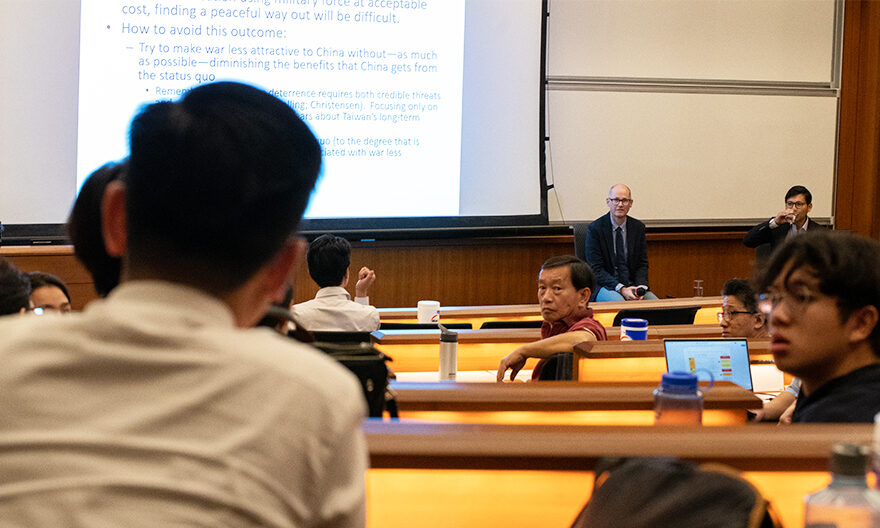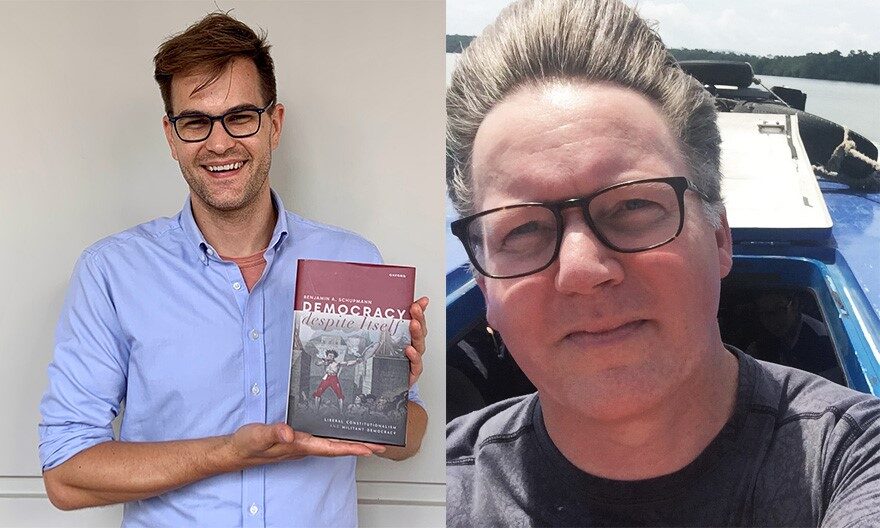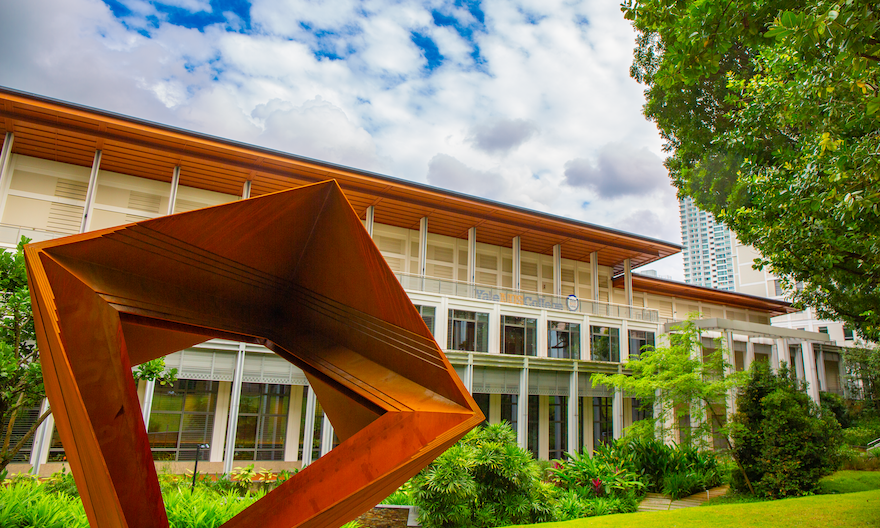In Conversation continues with journalist Han Fook Kwang and parliamentarian Pritam Singh
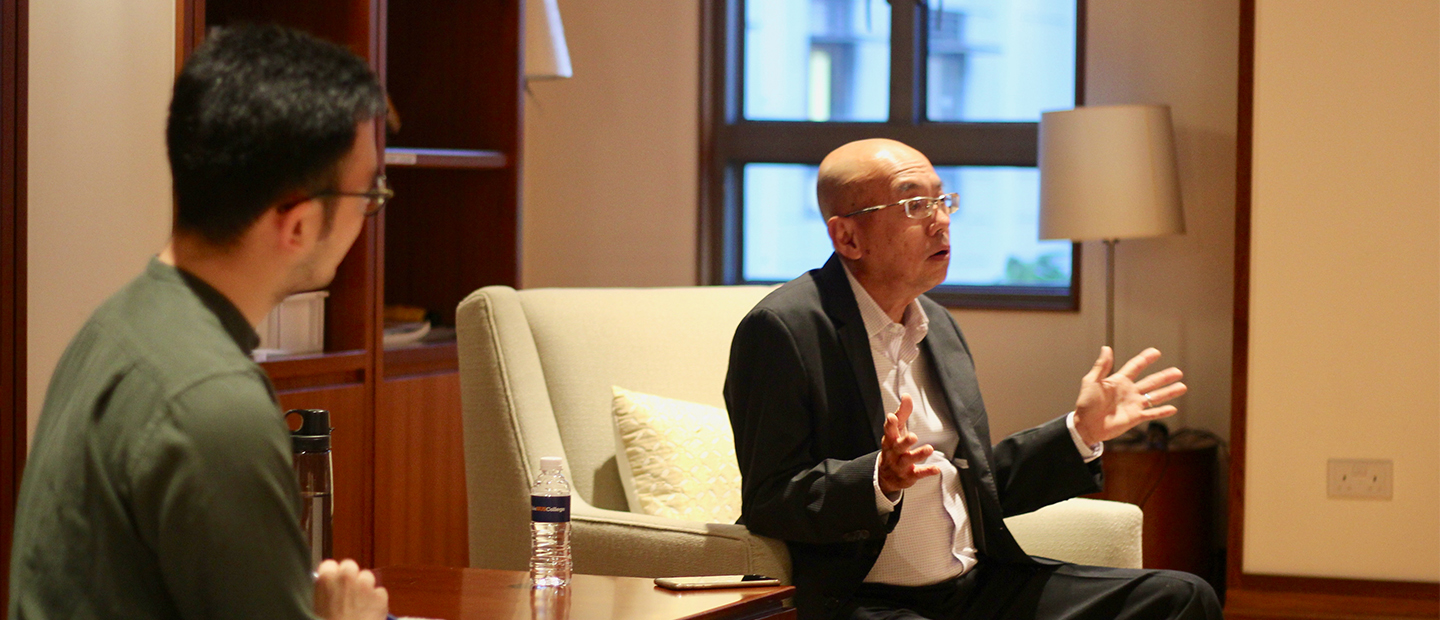
Over the past semester, Yale-NUS College hosted two distinguished public figures as part of the ‘In Conversation’ dialogue series.
On 21 February 2018, Mr Han Fook Kwang (pictured above), Editor-at-large at The Straits Times, a leading English daily in Singapore, spoke with students about the relationship between the media and the government in Singapore. Mr Han spent 10 years in the Singapore Government Administrative Service before joining The Straits Times in 1989, where he served as Editor from 2002 to 2012.
The dialogue was moderated by Tee Zhuo (Class of 2018), who will be joining Singapore Press Holdings (SPH) as a scholarship holder. SPH is a key media organisation in Singapore, which owns businesses in print, online and new media, including The Straits Times.
“I have a strong professional interest in journalism and have had my own frustrations as a journalist, having interned at SPH previously. I saw with my own experience how challenging it was to be part of a publication that is sometimes generalised as a ‘mouthpiece of the government’, as well as feeling the need to have a more critical voice in political articles. I was thus glad for the opportunity to moderate a discussion with Mr Han and learn from his career experiences in the government and media,” Tee shared.
Mr Han covered a wide range of topics during the dialogue, ranging from the views of the late founding Prime Minister Lee Kuan Yew on the role of the media to the impact of unique legislations in Singapore that regulate the media industry, such as the Newspaper & Printing Presses Act.
He also touched on the impact of new and social media on the traditional media industry. “This is currently the most critical problem for newspaper companies as their business model is turned on its head,” he noted, citing some examples of companies that have gone bankrupt or had to find new sources of revenue.
“The media environment has changed completely and our big question now is whether those rules of the game, that have not changed fundamentally, can still apply today,” Mr Han added, in relation to how the existing framework of media regulation in Singapore needs to be reformulated in light of new technologies.
For Alysha Chandra (Class of 2021), her greatest takeaway from the dialogue was the discussion on the impact of new media on the relationship between the media and the government.
“I found Mr Han’s view about the symbiotic relationship between the media and the government interesting, especially with regard to how that might change as the barriers of entry to the media industry get lower with the rise of new media technologies,” she shared.
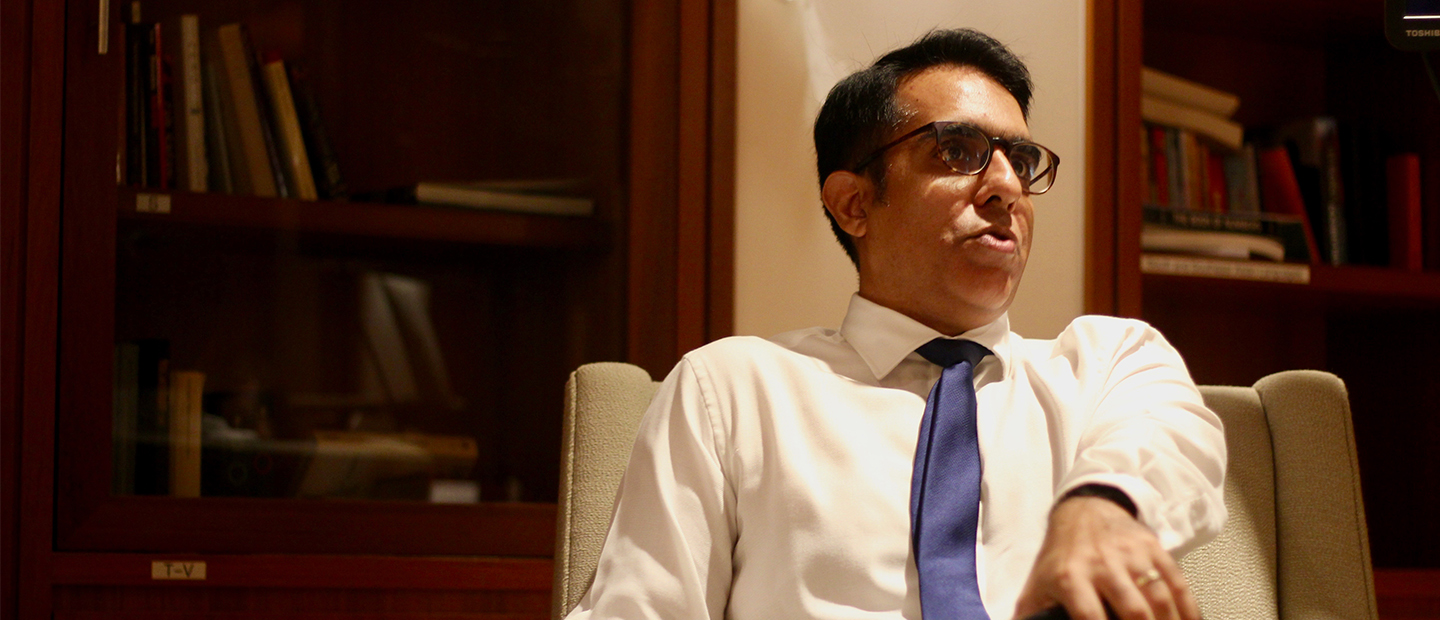
The second speaker was Mr Pritam Singh (pictured above), Secretary-General of the Workers’ Party of Singapore, who spoke to the Yale-NUS community on the ‘Fake News’ problem and the role of public engagement in the legislative process on 10 April 2018. He currently sits on the Select Committee on Deliberate Online Falsehoods, which was convened by the Singapore Parliament to examine and report on how to prevent and combat online falsehoods. Mr Singh was elected to Parliament in 2011 and currently represents the Group Representative Constituency of Aljunied.
He began the session by reviewing the relevant legislations relating to the formation of a Parliamentary Select Committee and explained that such committees are not commonly organised in Singapore.
“This committee is formed at a time when many jurisdictions are trying to find solutions to this problem,” he observed, citing examples from France, Germany and Malaysia.
Amelia Chew (Class of 2018), who attended the session, said, “Having participated in the public hearing at last year’s Constitutional Commission on the Elected Presidency, I was curious to hear Mr Singh weigh in on the role of Select Committees in soliciting public feedback and influencing public policy decisions.”
Mr Singh also shared some of the ideas and proposals from submissions made to the Select Committee, such as a typology of different types of deliberate online falsehoods. “My view is that we are looking at one end of this spectrum, where fabricated and manipulated content are aimed at undermining society,” he shared.
The floor was then open to a lively array of questions, ranging from the role of opposition parties in Singapore’s democratic system to the necessity of new legislations to tackle online falsehoods as well as the proposal for a ‘freedom of information’ law in Singapore.
On her takeaways from the event, Amelia said, “Apart from providing insight into the hot button issue of ‘fake news’, the session also highlighted broader questions about the role of different stakeholders in interpreting historical narratives, the nature of the truth, and how private individuals can play our part in moving public discourse forward.”
‘In Conversation’ is a series of informal dialogues with prominent thought leaders on issues from public and foreign policy, to education and the environment. It was launched in August 2017 by Yale-NUS College President Tan Tai Yong and has hosted speakers such as former Nominated Member of Parliament Mr Viswa Sadasivan and Senior Minister of State, Ministry of Communications and Information & Ministry of Education Dr Janil Puthucheary.

